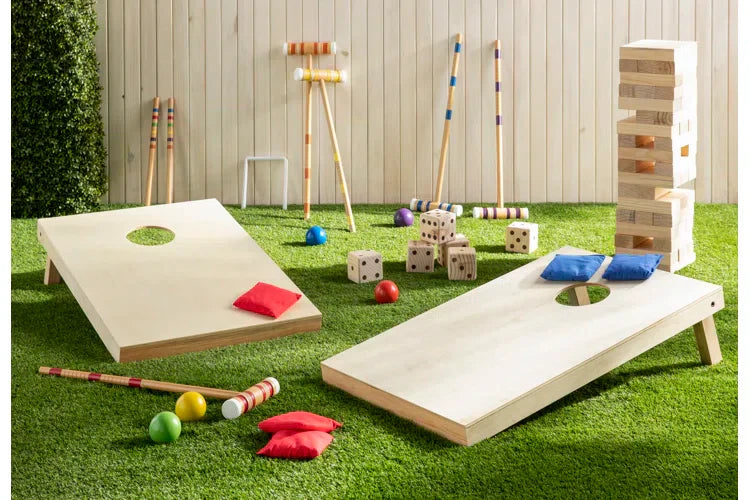
Why Games Are Good for Kids: 7 Benefits That Might Surprise You
Share
Games aren’t just about having fun. They help kids grow — mentally, emotionally, and even socially. At The Best Group Games, we’ve seen it firsthand: when kids play the right games, they learn skills they’ll use for life.
Here’s what research shows about why games are good for kids, plus how they encourage healthy development at home and in the classroom.
1. Games turn kids into problem-solvers
Puzzles, strategy games, even simple matching games — they challenge kids to think critically and make decisions under pressure. Studies have found that children who play problem-solving games score higher in memory and reasoning skills. Choosing games that push kids to strategize helps strengthen focus and patience, both in school and beyond.
2. They teach teamwork naturally
Multiplayer and group games encourage cooperation without forcing it. Kids learn to listen, share roles, and work toward a common goal, often without even realizing they’re practicing valuable life skills. This kind of teamwork carries over to sports, school projects, and friendships.
3. A built-in stress reliever
Life can feel overwhelming for kids too — schoolwork, sports, social changes. Games offer a safe outlet to relax and recharge. Research shows that play reduces stress hormones and improves mood, helping kids manage emotions and return to tasks with a clearer head.
4. Boosting hand-eye coordination
Action and movement-based games sharpen reflexes and improve fine motor skills. These benefits don’t just stay on the screen; they translate into sports, handwriting, and other everyday tasks that require coordination and precision.
5. Inspiring creativity and imagination
Open-ended games where kids build, design, or create encourage imaginative thinking. Whether it’s crafting worlds in Minecraft or inventing group challenges, these creative skills help kids problem-solve in fresh ways and think beyond the obvious answers.
6. Building resilience through failure
Games are filled with retries and do-overs — and that’s exactly why they help kids grow. Learning that failure is part of the process builds grit and resilience. Kids start to see mistakes as opportunities to improve, not reasons to quit.
7. Preparing kids for a tech-driven future
Gaming introduces children to digital environments, problem-solving in virtual spaces, and technology they’ll continue to encounter as they grow. These early experiences help kids feel confident navigating the digital tools and skills they’ll need in school and future careers.
The Bottom Line
The right games do far more than entertain. They build sharper thinking, encourage creativity, and teach social skills that last a lifetime.
At The Best Group Games, we love helping parents, teachers, and youth leaders discover why games are good for kids — and how to use play to spark learning and connection. Ready to find your next favorite activity? Explore our full collection of games here.
